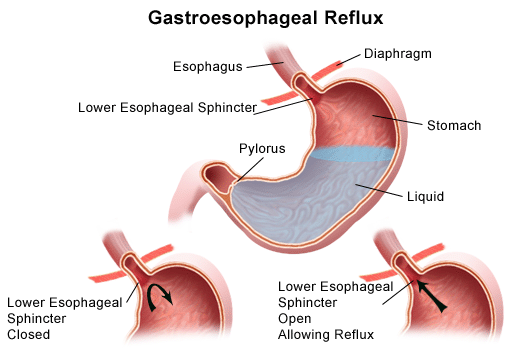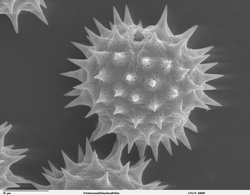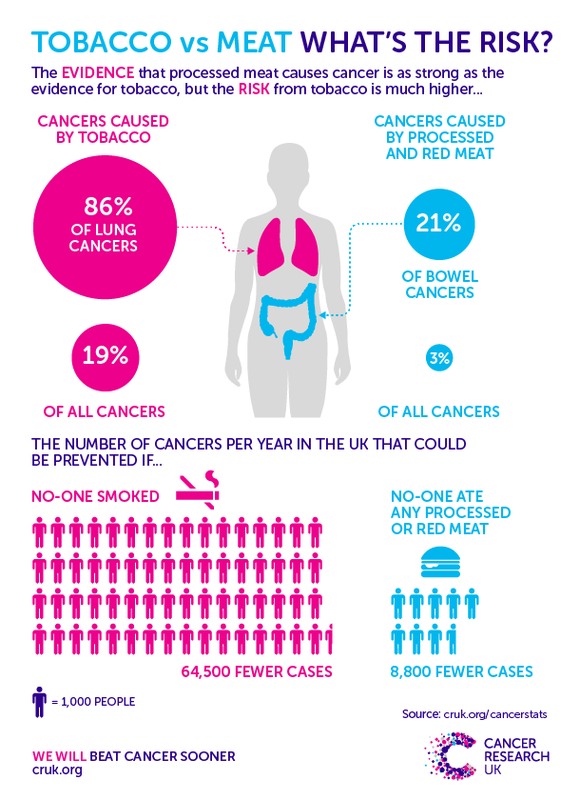|
24/8/2016 2 Comments 5 ways to avoid heartburn Image:http://www.stanfordchildrens.org/en/topic/default?id=gastroesophageal-reflux-disease-gerdheartburn-in-children-90-P01994 The summer season is here! That means spending time with friends and family, work parties, bbq's with yummy food and drink, and sunscreen. With all the summer fun, usually comes the dreaded summer heartburn (insert spooky music here). Summer Heartburn is not a diagnosis you’ll find in any textbook, it’s just how I refer to the consequences of maximizing the enjoyment of the summer. So, the question is, how do I prevent Heartburn?? The key to prevention is understanding the cause, so as per usual I’ll do my best to break it all down for you. What is Heartburn? Heartburn is formally known as Gastro Esophageal Reflux Disease (GERD), the action of the acid from your stomach moving up and splashing your esophagus. This is what leads to that burning feeling you get in your chest and the back of your throat. What causes heartburn? There’s a couple theories:
Everyone has slightly different triggers, but the main offenders are usually from lifestyle and diet.
How do I treat my heartburn? Basically do the opposite of the things that trigger your heartburn Lifestyle:
Diet: avoid the above foods There you have it, simple and realistic ways to prevent and minimize your heartburn symptoms. Now get out there and enjoy the rest of your summer! (insert sunglasses smiley emoji here)
2 Comments
18/5/2016 1 Comment What are the Mumps?With the recent news that there are multiple confirmed cases of the Mumps virus here in Whistler, I thought it would be a good idea to get the facts before we rush to Dr Google. I’ve put the basic info that you would need to know here.
What are the mumps? It’s an acute viral infection that results in swelling and tenderness of the parotid gland. The parotid gland is below your ear along the jaw line. Symptoms
Treatment
4/11/2015 0 Comments What is Switchel?With all the buzz around fermented drinks like kombucha and kvass I figured I should take the opportunity to tell you about another tasty treat out there that also has beneficial properties for digestive health.
I've been hearing more and more about this tasty drink that seems to have a lot of digestive benefits. It's incredibly simple to make, so lets get right to it! But first, let's break this drink down:
Serves: 4 Ingredients:
Yes, the rumours are true. Bacon and other processed meats have been deemed a Group 1 carcinogen. Sorry Jim Gaffigan. The announcement last week has left people quite surprised. Not because they thought that processed meats were bad, (they already knew that) but because now the World Health Organization (WHO) has told us they're bad. So now people have to pay attention. The WHO reported that "with each 50g portion of processed meat you eat, there is an 18% increased risk in colon cancer...this is among people with a higher intake of processed foods." Associations were also seen with pancreatic and prostate cancers but they weren't mentioned much of in this report. So what else is considered a Group 1 carcinogen?: Arsenic, Asbestos, Benzene, Cadmium, Diesel Exhaust, Hepatitis, HIV, Oral Contraceptives, Plutonium, Tamoxifen, Tobacco, and X-rays just to name a few. So what is colon cancer?
Colorectal cancer is a neoplasm or over growth of cells that can grow anywhere within your large intestine. This is where you normally reabsorb water and your fat soluble vitamins (A,D,E,K). Why do we care? According to the Canadian Cancer Society, colorectal cancer is the 3rd most common cancer and 2nd leading cause of deaths. It is estimated that in 2015:
Remember, the best diet is variety. Updated January 18 2021
When you walk into a grocery store in Whistler, the first thing you notice is the cost. The price here is much more than people are used to. So, what do we do? We start to shop smart. How do we shop smart? Well I'm glad you asked... The key here is to have a plan in mind. Here’s 5 easy steps to help keep you healthy and within your budget. Step 1: COOK AT HOME. It’s almost always cheaper to eat at home. Step 2: Take a second and PLAN OUT YOUR MEALS. If you have a plan, it makes shopping that much easier. This way you can avoid randomly spending $10 on ice cream and put $10 more towards the food you SHOULD be eating. Team up with housemates, family, friends etc to make the meals, this will decrease your costs. It's also a great reason to meet up with friends and family members. Step 3: CHECK THE FLYERS THAT WEEK. It’s very simple but rarely done. This lets you know what’s on sale before you even set foot in the store. I’ve attached links to our local grocery stores so you can check them out weekly. Creekside Market The Grocery Store Fresh Street Nesters Market Independent Step 4: SHOP THE OUTSIDE AISLES OF THE MARKET. This is where we always find our healthy food. Our veggies, fruits, and proteins etc... Once we enter the middle aisles, that's where we tend to find the foods we want to avoid, the processed foods. If we stick to our budget and spend our money on these healthy foods, then we wont blow our cash on the unhealthy stuff. One of my supervisors in med school Dr Afsoun Khalili taught me this part. She would actually take patients to the grocery stores and teach them how to shop effectively. Step 5: EAT WELL… for cheap That's it… eat in, plan ahead, check for sales, shop the outside aisles. That's your basic blueprint to eating well and not spending a fortune. Let me know how it goes. At this time of year, a lot of the local restaurants offer a seasonal meal deal. Check out some of your favourites to see if they have any deals on for you to save some cashola. Don't forget about Whistler’s farmers market in the summer. This can be great for finding your healthy food for cheap!! http://www.whistlerfarmersmarket.org There's no need to go out and buy those super sugary, highly salty sport drinks. You can make your own at home for dirt cheap and it honestly tastes better, and is better for you.
This one is super simple. I can't take credit for this recipe, it was passed on to me by my wise supervisors while in med school. This recipe is for 1 litre of water. You can adjust the scale to make as much or as little as possible. I suggest making a big batch to keep in the fridge on standby. The ingredients:
Please feel free to submit comments or questions 10/4/2014 2 Comments How to prevent allergies Updated May 31 2015 Now that the snow has melted, the sun is out, temperatures are rising, moods are happier and people are spending more time outside. But for some, there's an ugly side to the coming of spring....the return of allergy season. For those of you that are familiar with allergies, you know the classic symptoms all too well:
On top of the above mentioned approaches, naturopathic doctors offer specifically tailored plans to help you with your specific allergy symptoms. These plans may consist of botanicals, acupuncture, homeopathics, and supplements. There are many options to help you minimize these symptoms. These approaches can help curb the intensity of your allergy symptoms and get you back out enjoying your day. Consult with your healthcare provider for your best treatment and prevention options. 9/3/2014 1 Comment What are probiotics?Usually the chat about probiotics comes up pretty often. A lot of people are aware of probiotics, but aren't always clear on exactly what probiotics are or what they do. I like to explain what probiotics are and how they can help the health of the individual. Quite a few people know about probiotics from yoghurt or from an ad they saw on TV. However, very few of my patients really know how probiotics can help their specific health concern. This is a great opportunity to learn and take charge of their health and make informed decisions. So let me take this opportunity to try and explain what probiotics are and how they work.
What are probiotics? Probiotics are small bacteria that are used to increase and or replace the good bacteria already present in the body. They promote a healthy digestive tract and support defense mechanisms. There are over 500 different strains of bacteria that live in your digestive tract. It is believed that there are 10X more bacteria in your body then there are normal cells. They combine to weigh roughly 1 kg. The genes from these organisms may be as much as 150 times larger than the total human gene content. That's a lot of bacteria!! The 4 most dominant classes of bacteria are: Bacteroidetes, Firmicutes, Proteobacteria,and Actinobacteria. There are many many different strains of probiotics for sale out there, each with a claim as to why that strain is the best (that is a whole different topic that should be discussed with your healthcare provider). It is believed that different strains of probiotics have different functions in the body. How do probiotics work? Probiotics have multiple functions in the body such as:
When can I use probiotics? Probiotics can be useful in many scenarios, here are the most common situations:
Thats the simple explanation of what probiotics are and how they work. Before picking any probiotics, consult with your healthcare provider to find the best strains for you and your health needs. 26/1/2014 0 Comments What is a detox?Updated May 31 2015
I was talking to a patient last week about her new years resolution to get healthy. She mentioned to me that she was interested in doing a detox, like the one she saw on that popular Dr show. I said "ok, no problem, but my detox plan is different than his though. My plan is longer than just a few days." She paused briefly and looked a bit puzzled. I asked "what's the matter?" She said, "wait a sec, what exactly is a detox?" I said "that's a great question...allow me to explain..." This is what I told her: Detoxification is any process of decreasing the negative impact of xenobiotics (external foreign toxic molecules) on bodily functions. It includes biotransformation of endogenous (within the body) and exogenous (outside the body) molecules into excretable metabolites and or waste products. There are SIX main pathways of elimination:
How the Liver detoxifies The Liver is the primary organ of detoxification. Detoxification occurs in the liver through 3 major pathways: Phase I, Phase II and Phase III.
Always consult with your healthcare provider to have the proper guidance to complete your "detox". 31/10/2013 0 Comments What Is B12 vitamin? What are B12 benefits And What's The Difference Between Cyanocobalamin vs Methylcobalamin Updated Oct 2016: This link is a 15min video that summarizes even more about B12 and B12 deficiency. I've had quite a few patients ask me, "so what's the difference between all the different types of B12 and why does the cost vary so much, and why should i care?" Ive also had just as many patients tell me that they didn't know that there were different forms of B12. So I put this together to give everyone an idea of the functions of B12 and the differences between the 3 forms of B12. B12 Functions B12 (cobalamin) is one of the many water soluble vitamins that your body needs for good health. B12 is needed to promote digestion; nervous system health; fatty acid metabolism, protein metabolism and folic acid metabolism as well as many enzyme reactions in the body. "How can I know that Im low or deficient?" It is indicated in pernicious and macrocytic anemia. People with low stomach acid will likely absorb less because stomach acid and other factors aid in B12 absorption. It can also manifest in fatigue, cardiac problems, neurological disorders (memory loss, sensation changes, confusion, depression), orthostatic hypotension (feeling dizzy when you stand up quickly), and decreased immune function. It may also affect melatonin production leading to sleep issues. It is also indicated in people taking the oral contraceptive pill. The dosage and method of B12 administration should be discussed with your Naturopath or MD prior to starting the supplement. Some people have genetic defects that cause them to not convert B12 into the active format effectively. This can be evaluated by genetic testing. Testing your B12 Serum B12 (blood test) is the most common way to have your B12 levels evaluated. Since B12 is involved in so many processes in the body, I like to see the levels in the mid-high range on the blood test. Food sources According to the Dieticians of Canada, the majority of B12 in your diet comes from meat sources. Therefore people who don't consume meat should consider B12 supplementation. There are currently mixed reviews about algae and its use as a B12 source in the diet. So now that we know what B12 does and we know its food sources, "what's the difference between all the different B12 forms?" There are 3 main forms: Cyano, Methyl, and Hydroxy. Cyanocobalamin Is the synthetic form of cobalamin used in many supplements. It's popular because of its low cost and stability. It's usually found only in trace amounts in the body. Cyanocobalamin must be converted to the methylcobalamin form in order to become active in the body. Therefore it has no real function in the body other than to be broken down into an active form. When cyanocobalamin is metabolized, it dissociates leaving the cobalamin (B12) and a cyanide ion. Cyanide is a poison to humans. Due to the cyanide portion of this form of B12, it is contraindicated in smokers and people with kidney problems. It as also been mentioned to be avoided in children with autism (still being debated). Methylcobalamin This is the coenzyme form of B12 that is used in the metabolism of all the processes mentioned earlier. This form does not require conversion in the body and is therefore more direct in its actions as a supplement. The main difference here is that the methyl form of B12 costs more. However, now the cost difference between cyano and methyl is not so large. Hydroxycobalamin Is another form of B12 that is very similar to methylcobalamin. These two forms of B12 have shown very similar methods of action, absorption efficiency and effectiveness. The difference here is that Hydroxycobalamin lasts longer in your body. It is not put into the more bioactive form of Methyl right away so your body doesn't use it all up at once. The debate will continue on whether to choose cyano or methyl or hydroxy. For my patients, I will always choose methyl or hydroxy forms. For me, there is no point in trying to save money in choosing cyano if I don't absolutely need to. I suppose if something happens to the world's supply of methyl and hydroxy, making them extinct, then yes, I would use cyano. However, until that day comes, I really don't see the need to do so. As for the cyanide safety debate, rather than take a chance with my patients, I would rather just go with the form that is known to not have any concerns with cyanide. It just makes sense to not take the chance with your health. As of now the research claims there is no significant risk in choosing the cyano form, but we used to say the same things about plastics (phthalates, BPA), lead paint, leaded gas, asbestos, hand washing before surgery, and the use of cocaine in coca cola. So for the minimal difference in cost and the less risk of harm, I would go with methyl or hydroxy, it's more bioavailable and is the more natural form. |
CategoriesAll Allergy B12 Botanicals Detox Diet Digestion Education Electrolyte Flu Healing Health Homeopathy Immune Health Lifestyle Liver Health Nature Naturopath Nutrition Probiotics Supplement Whistler AuthorDr Landon McLean is a Naturopathic doctor accepting new patients in Whistler BC Archives
September 2020
|

 RSS Feed
RSS Feed